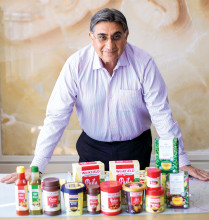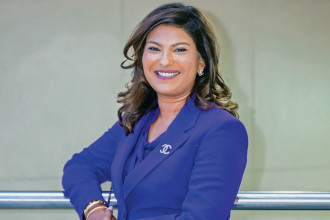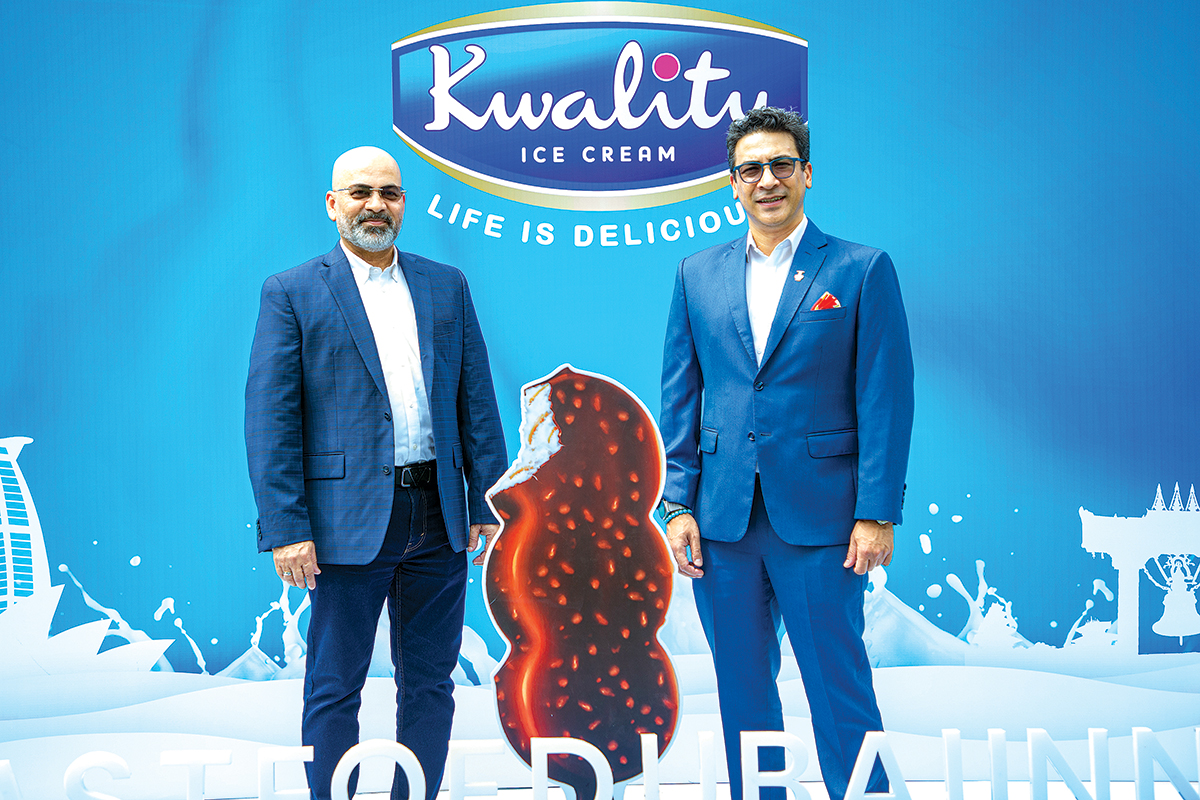
Mazhar Ali is the Vice President - Sales, Marketing and Supply Chain of Pure Ice Cream Co and Graviss, a UAE-based company that manufactures the globally recognized, Kwality brand of ice creams.
Though Ali is also involved in the frozen foods business through his involvement in Graviss, a subsidiary, he essentially looks into the business of Kwality ice cream in Nepal.
Ali reveals that the business first originated in India in the 1940s and later a plant was established in Dubai in 1977. “Since then, we have been catering to global markets and we are present in more than 20 countries,” he says. He mentions that Pure Ice Cream has been steadily gaining popularity globally due to its focus on innovation. “Ice cream is an indulgent category where people look forward to something new every summer and every year we come out with some exciting new products for our consumers,” he shares.
With a major focus on research and development, Ali states that the company is one of the leading innovative companies in the region. Having joined hands with Jyoti Group in Nepal, he states he looks forward to building the business in Nepal. “We want to have a place in the people’s hearts as a quality brand,” he says.
Recently, Ali was in Nepal for the official launch of Kwality Ice Cream on June 19, where Business 360 caught up with him to learn more Kwality’s plans for Nepal.
What do you think sets Kwality apart from other ice cream brands?
The unique selling proposition for our brand is our innovation. Every company offers vanilla, strawberry, chocolate, the basic flavours and the chocóbars or the lollies. However lately, since the last few years, we have started developing new formats for our consumers. We believe in offering something new to consumers. For instance, we have launched the cupcake ice cream which may not be available with many brands. It is a brownie in a cup swirled with two ice cream flavours with the inclusions of nuts and cherry on the top. This format may be available in some ice cream parlours but we have made it available in retail stores. Also, we have made available sundaes in retail packs which earlier was not available in such packs. These are the innovations we keep offering which has endeared us to consumers globally. We keep making consistent quality improvements from time to time. We use the finest ingredients from across the globe and we try to offer best to our consumers.
Could you elaborate on the sales and marketing strategy for Nepal?
This is the basic reason why I am here in Nepal. This is actually my second visit after six years. We have now forged a collaboration with Jyoti Group and I am very happy about it. The Jyoti Group has an aggressive, professional team who can guide us, take us around the market so that we can see what different we can do in the market than the competition. We will be further developing a strategy with Jyoti Group so that we can build our sales and distribution network and reach consumers far and wide.
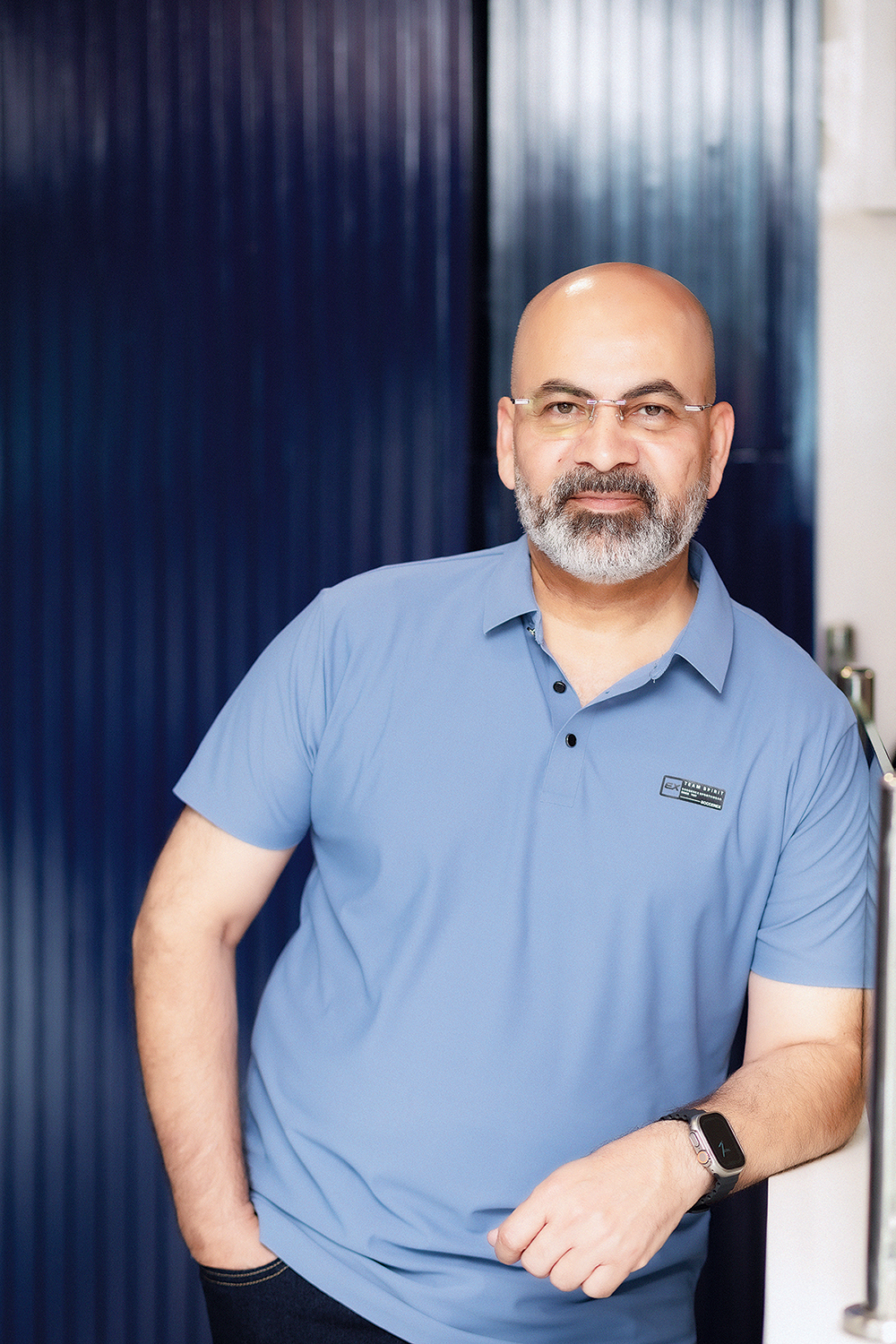
Is there a specific strategy for Nepal?
Yes. Firstly, the brand is new to the market, so we need to build the brand. We want to get into various media such as social media, print media as well as TV so that people can hear about our brand, what the brand is going to offer them which is different from other brands currently available in the market. We need to create that space in the consumers’ minds and hearts. The brand has to first be imprinted in the consumer minds so that when they get into a store to buy an ice cream, they recollect our brand and start becoming our consumers.
Since when did the collaboration with Jyoti Group start?
We have been in talks for almost one-and-a-half years now and we finalised all the agreements nearly six months ago. It took us quite a long time to finalise the details because it takes a long time for the products to reach Nepal all the way from Dubai. That struggle is there but we will definitely overcome it. The ice cream business is not an easy one for everybody to handle. It requires a complete cold chain management from the time it is produced until it is in the mouth of the consumer. It is a tough business and not many players can play this business. But Jyoti Group and us, we are tough guys. We can do this.
We have already thought through of how we can collaborate with Jyoti Group. We know the group because we have been doing business with them since many years with Baskin Robbins in India. We know their strengths and their distribution reach. We are also happy with their enthusiasm to build a business in the Nepali market. They are one of the leading business houses in Nepal. So, expectations are always high. I am sure Jyoti Group will be able to deliver along with our efforts. We will be supporting the brand to build in Nepal.
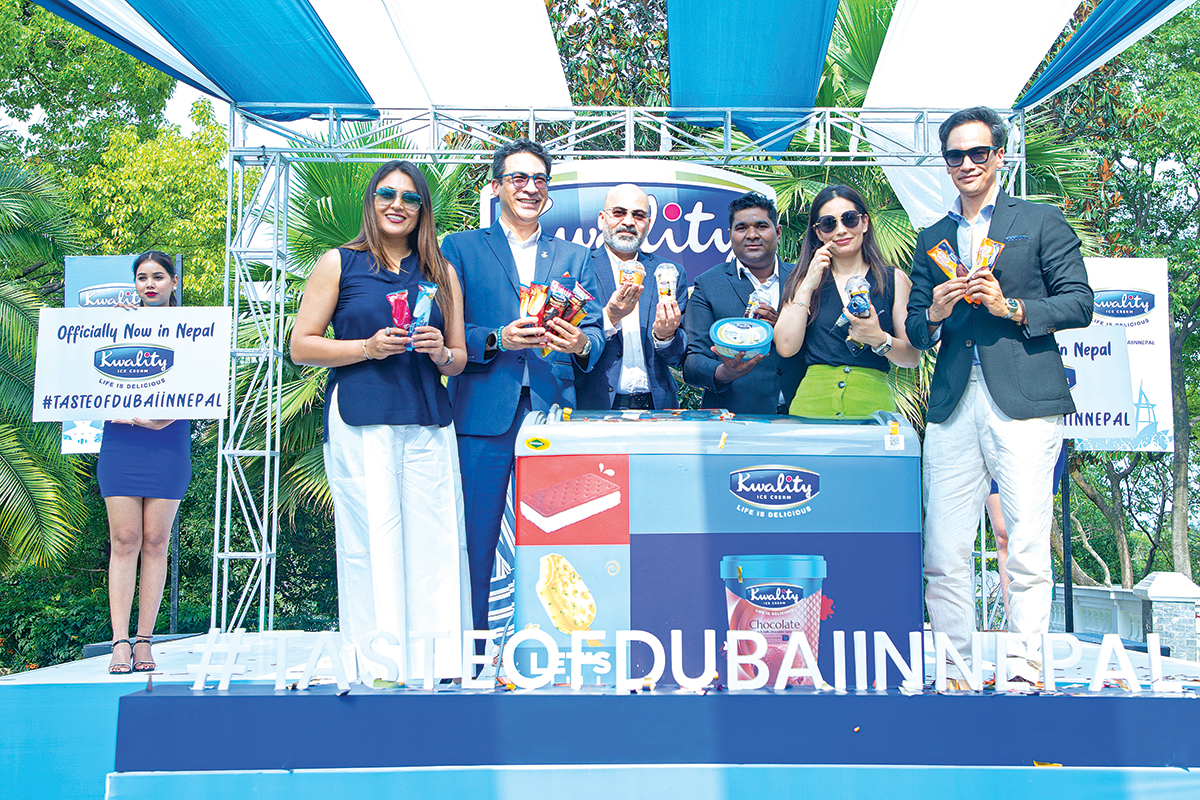
Could you give us an insight into the supply chain management process that delivers the ingredients, maintaining the quality all the way from Dubai to here?
It is quite a lengthy process and everything has to be looked into in detail. Once the product is made it has to go to a hardening tunnel where the product passes through -40°C environment. The product gets hardened for a couple of hours and then it is immediately shifted to a cold room with a temperature of -20°C. That is where the ice cream lives. Once an order has been received the ice cream needs to be immediately loaded on to pallets very quickly, which is then again loaded into a -20°C freezer container within 15 minutes. Once the container has been sealed it is taken to the seaport from where it is dispatched. The temperature has to be maintained at -20°C all the way to Kolkata from where it is brought to Nepal in freezer trucks and stored in cold rooms. When the product has to be transported to various locations within Nepal, it is again loaded to trucks that maintain the -20°C temperature. Finally, the sales points also store the product in the same temperature. The only time the ice cream is free of -20°C temperature is when it is in the mouth of the consumer. As long as the temperature is maintained, the product will not lose its taste.
“I am excited about the market here. There is a lot of potential in the Nepali market. I am an opportunist and when I see any opportunity I like to grab it. Moreover, we have a great partner in Jyoti Group here. So, I am looking forward to building a good business in Nepal”
How do you select the locations to place your products?
This is a very crucial aspect of sales. Some top-end supermarkets might have their own freezers but many points of sales do not have them. Freezers are essential to both store and display the products. When we do place freezers in stores that do not have them then it means there is an investment incurred for about seven years. So, we need to see whether the sales coming out of each freezer every month is good enough to recover the ROI. Hence, we need to be very strategic in selecting our location – the geography as well as the demography of the location. Who are my target consumers? Do such consumers live in the vicinity? I cannot go and sell a super-premium brand in a low-income neighbourhood because people residing there will not be able to afford it. That will be a wrong strategy. Apart from that, we also have to be careful about what products go into which outlet because every product is not fit for every freezer or outlet. So, we need to be very careful in the product selection and also mix of products.
What is your pricing strategy for Nepal?
We won’t follow a uniform pricing mechanism. The challenge in Nepal is that due to transportation charges and customs duty, the product lands here at a higher price. We will try as much as possible to squeeze our margins, so as to first establish our brand and also make it more affordable to the people of Nepal. But at the same time, we don’t want to sell our brand as an economy brand. We are a mid-premium or a premium brand where we want to fill the gap between the super-premium and the mass ice cream, which is there in the market today.



